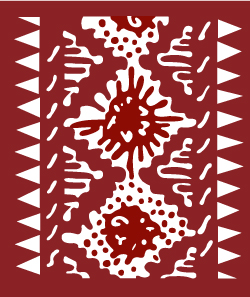MCG Visit to the Nine Emperor Gods Festival
The Nine Emperor Gods Festival is celebrated on the first nine days of the ninth lunar month in the Taoist calendar, by local Chinese communities in Malaysia, Indonesia, and Thailand, where it is called the Vegetarian Festival



The festival celebrates the nine sons of the Father Emperor and the mother of the Big Dipper. Devotees hope that they will be rewarded with long life, the elimination of calamities and the absolution of sins and past debts. The Nine Emperors preside over mortal issues and restore the balance of Ying and Yang.
The Emperors are considered to be the seven stars of the Big Dipper, plus the north star and the south star. Nine Emperor Gods temples often have two towers (North and South) to reflect the importance of these two stars.



The Festival has several important days. On the eve of the ninth month temple devotees journey to the river to welcome the Nine Emperors home. They wear white, and carry candles and incense to ease the journey home. Many devotees stay in dormitories on site. They pay 100 MYR to sleep on hard beds, wear white, pray three times daily and eat four vegetarian meals a day. The temple feeds a thousand people a day, as devotees come and say their prayers, make donations and meet up with old friends. On the third, sixth and ninth days the Taoist priests and the mediums do rituals to call the armies to defend the Emperors.



On the eighth night of the festival there is a ceremony of a ritual offering and devotees can walk over a symbolic river of flowing water to cleanse themselves. The ninth night involves a male-only ceremony of fire walking on hot coals. This brings the Yang forces back into balance with the forces of Yin. In Ampang, on the final night, the Emperors are returned by procession to the local river. At some temples, closer to the sea, the Emperors are returned to the heavens via a boat set alight at sea.
Cheryl Hoffmann gave a background information session about the importance of the festival and then led the group to the temple where we watched the devotees burn incense, say prayers and have a cup of tea with the Emperors. We then toured a women’s dormitory, the kitchens with giant woks and then the opera stage area where we saw where people can pray to the god of the arts. The Hokkien Opera is performed in view of the main temple, twice a day by a troupe in full regalia.



The group then ate a delicious vegetarian meal for 8 MYR at one of the many stalls around the temple. The festival has a carnival atmosphere with many items and good luck charms being sold in the various stalls. One of the main items are red turtles, made of dough and decorated with gold to celebrate the occasion and thought to bring long life.
The temple in Ampang was filled with devotees, smoke from joss sticks and clanging of bells when donations were offered. It truly is a celebration of the senses.
Pam Currie
Photos by Michelle Pease
& Elena Mei Yun
12/10/18
